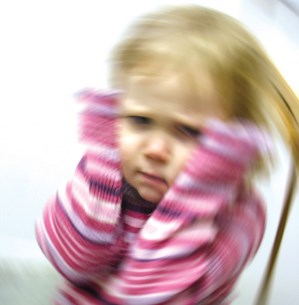What is this so-called "spanking" law and why should we care?
Over the past month there has been much discussion in both traditional media and social media about physical punishment of children and many parents are wondering about the issue.
Most parents today understand that hitting children isn't the most effective or respectful way to handle misbehaviour. As a matter of fact, many parents are flabbergasted to learn that there is a section of Canada's Criminal Code that not only permits the hitting of children, it defines when and how you can hit. So what does this section say?
Section 43 of the Criminal Code of Canada reads: "Every schoolteacher, parent or person standing in the place of a parent is justified in using force by way of correction toward a pupil or child, as the case may be, who is under his care, if the force does not exceed what is reasonable under the circumstances."
Now this was challenged in courts and adapted, although the wording has never been adjusted in the Criminal Code.
So now we live in a country that has specific rules for hitting kids.
Under the law, only parents may now use reasonable force solely for purposes of correction but teachers can use reasonable force to remove or restrain a child when necessary. Corporal punishment cannot be administered to children under two or over 12.
The law also says that discipline by the use of objects or blows or slaps to the head is unreasonable. Only minor corrective force of a "transitory and trifling nature" may be used and the physical punishment must be corrective, which rules out conduct stemming from the caregiver's frustration, loss of temper or abusive personality.
The question of what is "reasonable under the circumstances" requires an objective test and must be considered in context and in light of all the circumstances of the case.
In other words, you can only hit children between the ages of two and 12, you can only hit them below the neck and you can't use an object (i.e. strap, belt or hairbrush) when you hit them. That's what the law now says.
In this day and age, this is appalling. The research is clear. Any physical punishment of children carries with it clear risk factors. These include an impaired parentchild relationship because when fear is the basis for the relationship it creates a block between parent and child. It can lead to poor child mental health because the child cannot understand why this person that loves him is hurting him. He can also start to feel like a bad person. The most obvious outcome can be child aggression. When kids experience their parents hitting them they learn that aggression is an appropriate response to anger or frustration.
And it doesn't end just because you grow up. Many adults still carry either physical or emotional scars from the physical punishment they experienced as children.
Not all children who experience corporal punishment turn out to be aggressive or delinquent. But it increases the risk of injury and abuse.
Finally, a very important point is that corporal punishment does not help children internalize what is right from what is wrong. It simply teaches them that if they don't comply with the rules they will be hit. When we use fear as a motivator, when the fear stops the behaviour is likely to stop. So a child who is no longer afraid of their parent or who is over the age of 12 when physical punishment is not permitted will not have internalized the rules and is more likely to become delinquent.
Section 43 is not necessary. We can simply remove it and support parents to discipline their children in ways that are effective and respectful.
Kids do not ever need to suffer pain from the hands of their parents.
They do need to experience positive discipline techniques that will teach them right from wrong.
Forty-eight countries have taken the step to prohibit physical punishment of their children. We no longer want to live in a country that permits parents to hurt kids, so let's be the 49th country to act to protect our children from physical punishment.
And that is why we need to see an end to Section 43 of the Criminal Code. If you want to learn more, go to corinnesquest.ca.
Kathy Lynn is a parenting expert who is a professional speaker and author of Vive la Différence, Who's In Charge Anyway? and But Nobody Told Me I'd Ever Have to Leave Home. If you want to read more, sign up for her informational newsletter at parentingtoday.ca.



